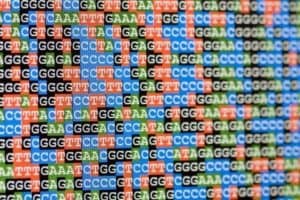uc san francisco
Father absence linked to earlier puberty among certain girls
Berkeley — Girls in homes without a biological father are more likely to hit puberty at an earlier age, according to a new study led by researchers at the University of California, Berkeley’s School of Public Health.
The findings, to be publis…
Secret documents reveal how tobacco industry targeted gay men
Philip Morris (now known as Altria) viewed the gay community as “an area of opportunity” for promoting the Benson & Hedges cigarette brand and targeted the community under the guise of philanthropy, according to UCSF researchers. In an analysis that appears in the June issue of the American Journal of Public Health, the UCSF team reports that Philip Morris advertised in the gay media in an attempt to “own the market,” but then quickly distanced itself. According to Elizabeth A. Smith, PhD, research associate in the UCSF School of Nursing department of social and behavioral sciences and lead author of the paper, “Philip Morris wanted the gay market but didn’t want to be publicly associated with the community.”
Study finds opioids offer significant reduction in nerve-damage pain
Attempting to resolve a long-standing controversy, UCSF researchers have shown that people suffering from chronic pain due to nervous system damage ? known as neuropathic pain — improved significantly after an eight-week course of the morphine-like medication levorphanol. Neuropathic pain affects about three million people in the U.S., and is considered very difficult to treat.
Embryonic facial development takes longer than thought
The sculpting of the face during embryonic development ? the physical molding that determines what we will look like ? may remain open to change much longer than had been thought, according to research by UCSF scientists. While this prolonged period means the developing face has increased vulnerability to environmental insults in utero, the plasticity also provides more opportunity for repair and restoration of facial defects in utero as new diagnostic and therapeutic techniques are developed to allow earlier intervention, the researchers say.
Study finds addictive drugs all tweak same neurons in brain
Drug addicts may prefer some drugs over others, but their brains all have something in common. Whether it’s uppers or downers, addictive drugs tweak the same addiction-related neurons, causing them to become more sensitive, say researchers at Stanford University Medical Center. “What we have identified is a single change caused by drugs of abuse with different molecular mechanisms,” said researcher Robert Malenka.
Restriction or ban of ephedra supported by first comparative herbal study
The first comparative study to examine the risk of taking ephedra with that of taking other commonly used herbs calls into question the herbal stimulant’s current standing as an unrestricted dietary supplement. Researchers found that products containing ephedra accounted for less than 1 percent of the herbal supplement sales in the United States in 2001. These products, however, were responsible for 62 percent of all herbal-related reports made to poison control centers nationwide that year, according to the study by researchers at the San Francisco VA Medical Center (SFVAMC).
Fat cells converted to bone
Pre-cells destined to become fat can be converted instead into true bone cells in
response to outside signals, say researchers at the University of California, San Francisco. The finding could pave the way for scientists to replenish lost bone cells in patients with conditions like osteoporosis, and to help repair bone defects. The new bone cells have all the hallmarks associated with mature bone formation, including production of bone proteins and calcification, the UCSF team says.


